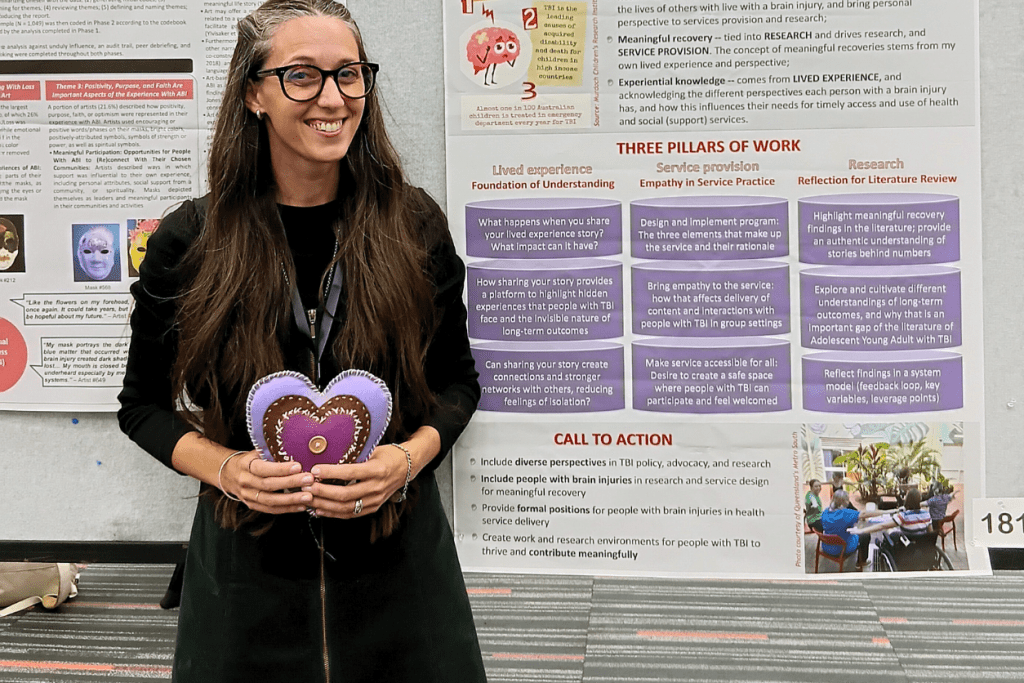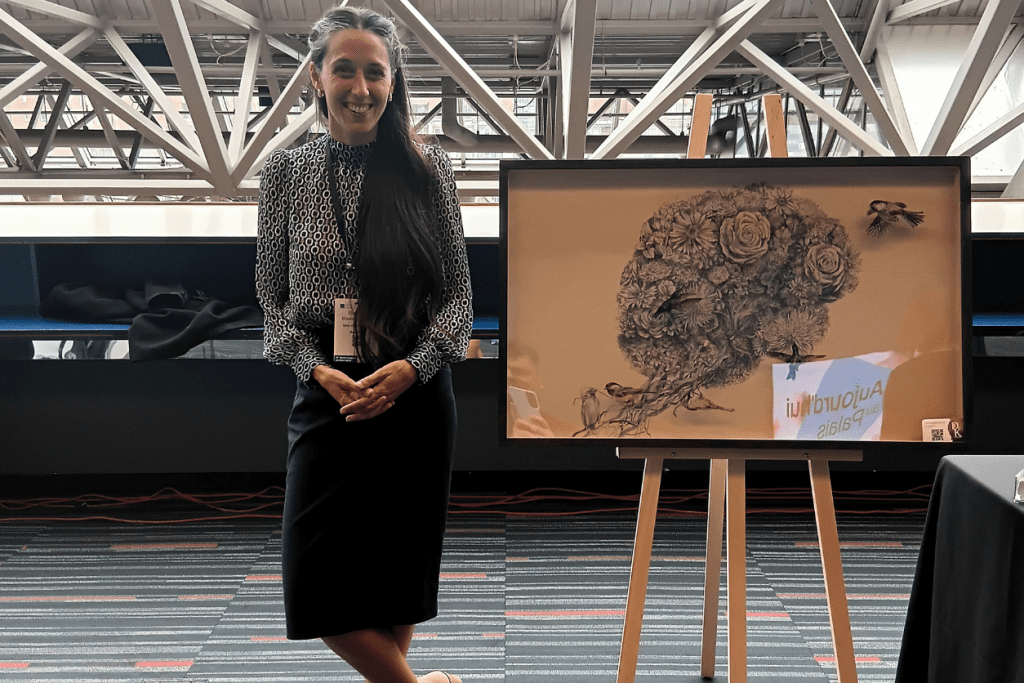Elizabeth’s journey to the 2025 World Brain Injury Congress

It’s been a little over a month since I took the stage at the 15th Annual World Brain Injury Congress in Montreal, Canada, and the feelings, interactions and experiences are still with me. In the months leading up to the conference, one thought that constantly ran through my head was: “I didn’t think I’d get this far in life.” Because honestly, I didn’t. If I rewind my life back to when I was 12 years-old post-traumatic brain injury, I’d be grateful if I went back to school with my friends. Once I achieved going back to school, all I wanted to do was be the student I used to be and make it through high school. I wanted a normal life all my friends seemed to have. But between the standards issues of adolescence and managing post-injury epilepsy, at times it felt like it was all going to crash down on me.
It was amazing to be standing there on the stage and think about how far I’ve come, both literally and figuratively. I have achieved more than I thought I would get to in life and travelled to the other side of the world by myself. A real high risk, high reward, not my typically way of approaching life. It wasn’t just the effort invested in the oral and poster presentations; it also encompassed the years of living with life after a brain injury and dealing with post-injury epilepsy.
I had arrived at the conference, and I couldn’t put my biggest fear behind me, I’m going to look foolish. For all the hard work I’ve accomplished I’ll still get up on stage and look underqualified or I don’t belong. The night before I gave my presentation all I could think was “I travelled all this way, and I must get up on that stage.” I also had a whole team of people supporting me -my co-presenters, mentors, brain injury survivors I work with, friends, and most importantly, my husband. I had to continuously check-in with myself and remind myself of the people that truly believed I belonged there, even when I thought I didn’t feel that way.

When I received the program, the first page said “invited speakers” and I saw my name. And the name below mine was a researcher whose work I studied during my thesis, and now I was in the same room with them. When I got my name tag, I almost burst into tears.
I spent the first day pitching my presentations to other conference attendees, and every time someone said, “that sounds interesting I’d love to come,” I immediately felt like vomiting. And again, I reminded myself, I didn’t come all this way to throw up on an international stage. I spent hours practicing and ensuring my presentation was exactly 20 minutes. Two other people presented with me, and I was thankful they believed in me enough that I could stand in the same space with them. When I woke up the next day, I put on my skirt-suit (which felt like playing dress-up) and stepped out the door with the bravest face I could conjure. I wanted to blend in as a professional, and I thought “maybe if I think of everyone as a colleague and not a critic, I’ll be okay.”
At some point I had to put the nerves aside. As my husband says, “when you get nervous, you start to make it about you.” This put a lot in perspective for me, because the reason why I was there was to get a message out and stand for people in the brain injury community. It’s not about me, but other individuals whose lives are impacted daily that don’t get to be there at the conference.
The Stone in the Shoe
Which brings me to another great piece of advice I received right before I stepped in the room to deliver the presentation. I desperately wanted to be respectful to the people that sent me, I wanted to create an image of someone poised and well-researched, I wanted to be effective and get my point across. Person-centred approaches are important to the work I do, and it felt critical that I got that message across to the audience. But something was missing. Part of me felt like at times, I was holding back. I want to be seen as professional in these spaces, but it doesn’t take away from other feelings that came up.
I shared with my colleague how I felt that, in certain cases, people with lived experience are often “just a statistic.”
Prior to my own presentation, I listened to many other presentations -I heard all the statistics, the outcomes, and what quality of life I might experience down the road. I shared with my colleague how I felt that, in certain cases, people with lived experience are often “just a statistic.” I reflected on how I’ve shared my story and participated in research, but at what cost? I had a feeling that something was lost and despite what I’ve accomplished, what I shared, I’m now limited to being a number on a graph. Did that number summarise the whole of my experience or who I am as a person? I started to feel like I wasn’t a person anymore. As an emerging researcher, I know people we need to see statistics and quantitative data. However, with every research survey I’ve filled out, focus group I’ve participated in, (you name it) -I’m reliving one of the worst days of my life. And I don’t think I’m alone in this experience.
Which brings me to question: do I bring this up on an international stage? Well, as my colleague put it, “don’t be afraid to be the stone in someone’s shoe.” And I guess that’s where I’m positioned now. I’ve shared my experiences and contributed to the conversation, but now, I feel ready to take up a new role: to question what’s been accepted for too long in the brain injury space, even if that means being the stone in someone’s shoe. I don’t want to be a number, or a dot on a graph. Importantly, for every number you hear, for every line you see, that’s a person -a person who bravely shared their story with a lifetime of experiences, that’s also more than their brain injury.
For as many presentations I heard with the bleak statistics, I heard other presentations from researchers who are looking at quality of life-they want to understand how to get brain injury survivors active, making friendships, having romantic relationships, included in groups, promoting mental health, and dating. I know the statistics about what type of life I could potentially face. In my post-injury years, I’ve spent a lot of time having those conversations over and over. I’m at a point where I want to see what can go right. I’ve formed a life post-injury, but like many others, I’m forever impacted by what happened.
Like many other brain injury survivors, I want to see actual change. I want to see people with brain injuries and their care networks thriving and leading international conferences. I don’t always want to be reminded of what could go wrong, but what could go right. I want to hear about how we can live meaningful lives, with genuine connections in all sizes, whether that be small groups or larger groups, post-injury.